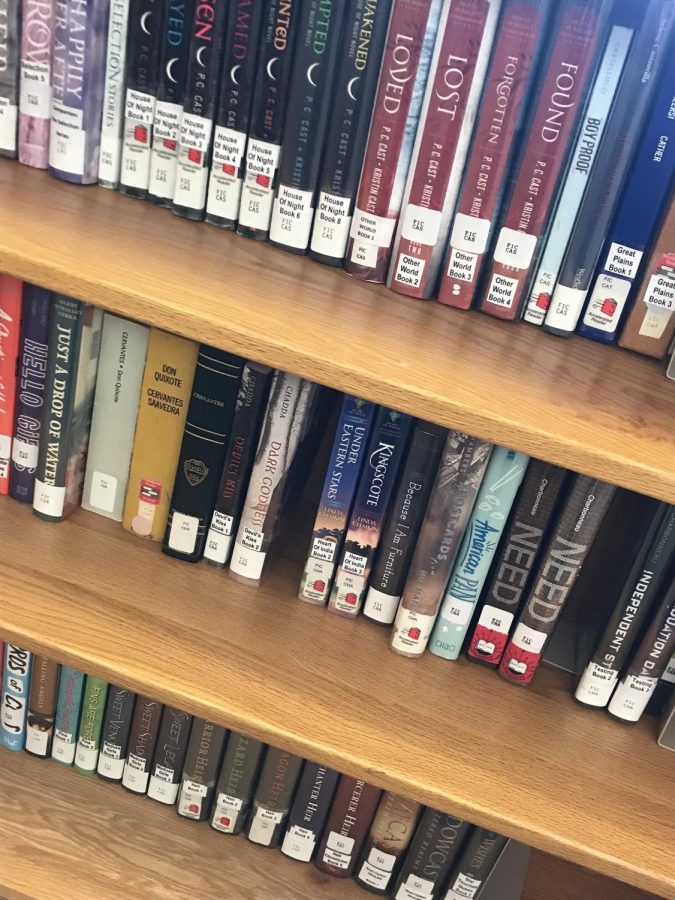Literature produces empathy in students
Being a human is difficult, and it’s even harder to develop an understand of other people as well as how to best connect and empathize with them.
One method of learning empathy is to read fiction or literature.
“The concept of literature producing empathy in people is part of the reason why I teach,” said Mrs. Ruselink.
Every year Ruselink selects stories to share with her students that teach them better ways of understanding each other, one of them being about a character who is angry about the death of their father and feels betrayed by their mother.
“I hear students discussing the nature of grief, either in the staging process that is studied in psychology or in the personal impact of the loss,” Ruselink said.
Adding on to that, she talks about how the students communicate with how they relate to the character’s struggles.
“Students begin to discuss about betrayal by friends and other relatives that they have felt personally, which is similar to what Hamlet is experiencing in the play. This connection is where empathy grows!” Ruslink said.
Not only does Ruselink tap into students’ emotions, Ms. Stegenga also explores empathy in her Creative Writing class.
Last year, Stegenga assigned her students to write a paper from the point of view of a nurse who was taking care of Covid-19 patients.
“There were times when the students said that the book felt almost ‘too relatable’ because of the confusion surrounding Covid,” said Stegenga.
Not only does the empathy being taught relate to current events, but also to other similar struggles or stories. Stegenga shows this in her classroom by introducing her students to each other’s stories and struggles.
“My students showed their empathy by starting to ask each other about the moments they were focusing on in their lives. One student talked about celebrating a birthday with order-in food from a favorite restaurant, and the next day, several classmates checked in about how the birthday dinner went. This was empathy!” Stegenga said.
Literature professor Beth Ann Fennelly, in her TED Talk, explained how literature affects us in different ways, and how it teaches us to better understand others.
“Reading fiction can educate us emotionally, intellectually, and spiritually,” said Fennelly.
She makes the case for why we humans and the world continue to need literature.
“Reading allows us to practice taking on another person’s perspective. Reading improves our social awareness,” Fennelly said.
She explains that reading about a character’s struggles and understanding the perspectives of the character can help us to read the emotions of others. We do this by practicing taking on another person’s perspective.
The many ways that reading literature can help teach empathy is part of the reason why Ms. Stegenga loves literature.
“We can see how other humans handle their experiences, and we can have a little more empathy for the challenges and joys of the people around us,” Stegenga said.





